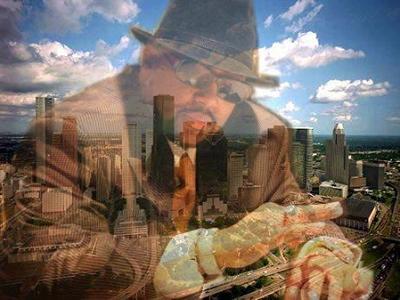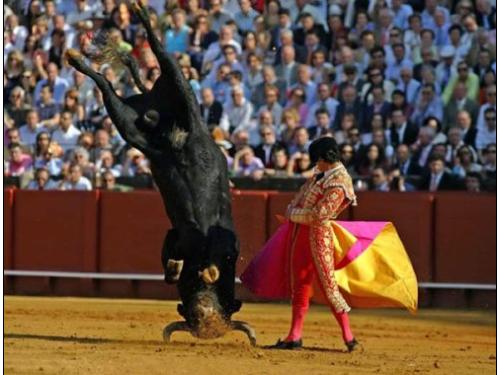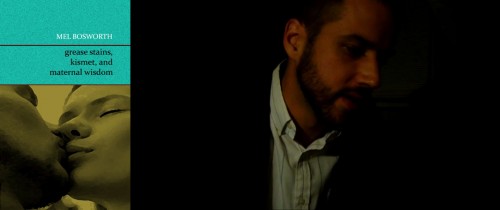
“I got too much cake, plus bitch I’m on parole, plus bitch I pimp dis microphone my mouthpiece is too cold to be stuntin bout some small change, bitch do ya see dis chain, cant ya see I got ya life in my pinky ring?”
“My Stepfather comes to me one day and he say “You know the problem with that rap shit? The problem with that shit is that it’s noise.” So I got defensive, because that’s what we do. “What you mean it’s noise?” He say “Naw… listen to what I’m telling you boy, that shit is noise, ain’t no music in that shit. You put some music in that shit and you might be able to get paid.””
“I never got no training ‘til I went to school. I was playing by ear. I had a drum set and I had the organ and I used to bang out. I learned early on that the white keys was, in my opinion, the “happy” keys and the black keys was the “sad keys.” That’s what I called them. Later on I would describe the black keys as the more funky keys than the white ones. I like minor notes, I like playing in that register, I enjoy the black keys. [But] I feared music at that time so I would stay away from the black keys ‘cause they were sad to me.”
“We didn’t consciously shape a certain sound. When I took a handclap out of my 808 and made it into the snare drum and played the hi-hat double time for the first time and shaped the sound that all these motherfuckers is calling all these different names; crunk an all this other shit, I wasn’t settin out to make no statement. I was trying to make a good record for Master P that day, when I made “Break ‘em off Something.” That’s all we ever set out to do is the best we could do that date and be a little bit better than we was the day before. I figured out a long time ago I couldn’t talk like New York, so I stopped trying to do it and I stopped trying to rap like them. This not an act—this is how I towk. This how we talk down here, some of us got a little deeper accent then others but this how we towk, so I said fuck it we gonna talk like this on a record. We sound different, my voice was high-pitched, I was different than the rest, you know, fuck it.”
“You magazine muthafuckas need to have more responsibility for what you write and put on your goddamn covers. I couldn’t get on a Source cover ’til I went to prison. I had to go to prison to get on the cover of yo funky-ass magazine?”
“I tell the truth even when I lie. I’ll pay a mothafucka to try me, bitch.”
“We didn’t have sense enough to know that they had people called producers that actually make the music, so we made our own music because we didn’t know no better.. Shit we thought everybody made their own beats, ya dig?”
“Every year for Christmas I’d get another piece of equipment – a drum machine, a four track here, a keyboard there.”
“Our thing is this, if it ain’t ready we don’t put it out, we put it on the side and come back to it. Some songs come together real fast, in one or two nights. Some songs take two years. Some take six years. It depends on the song and what’s going on.”
“All y’all niggas talking about selling dope? If y’all niggas was some d-boys, guess what, man? I don’t believe you niggas no more cause I’m seeing you niggas in button up shirts getting cute and pretty trying to look sexy. Nigga, fuck you. Nigga, and I ain’t gotta say your name. Play with me and I’ll expose the niggas that was wearing backpacks with their pant leg rolled up back then in Atlanta when me and Big Meech used to be off in the club kickin’ it buying each other champagne.”
“You aint a gangsta because you platinum or you drive a coupe, truth of the matter you’s a high dollar prostitute. You aint from ATL, you from Macon.”
“What causes a motherfucker to just straight up be a hater on these streets? What causes a motherfucker that you went to school with your whole life to want to shoot you and rob you? Jealous, envy, greed, wicked men, deceitful hearts, females with penises. Bitch ass niggas is what causes this shit.”
“You remember the pictures of Eric B & Rakim? Them niggas was cool motherfuckers. You had to be to get on a record. Just to touch the microphone you had to be a cold motherfucker. Now a person say “rapper” they think of a fugazi motherfucker, a fraud. A motherfucker that lies and talks about shit he ain’t never done. We done let so many fake motherfuckers come into this game and have embraced so much fraud shit and have gave awards and put crowns on so many pussy motherfuckers that to be a rapper now it ain’t even the thing to be. A rapper ain’t no upstanding citizen, a nigga gotta check your credibility.”
“The only nigga I see [in Houston] goin’ to the mall by himself is Slim Thug. Other niggas, when I see ’em, they got bodyguards around ’em. How you gonna be scared of the neighborhood you supposed to be reppin’? All them [Houston rappers] that think they stars, guess what, bitch? Ain’t no stars down here. Only stars is in the muthafuckin’ sky!”
“I want to use my influence to bring some positive things to this game. We’ve done enough tearing down on our own, let’s bring something positive to this shit. Let’s get back to the music instead of all the bickering and arguing about where a motherfucker is from. Just represent your hood to the fullest and everything gonna be alright.”
“See, real niggas don’t swap it out.”








